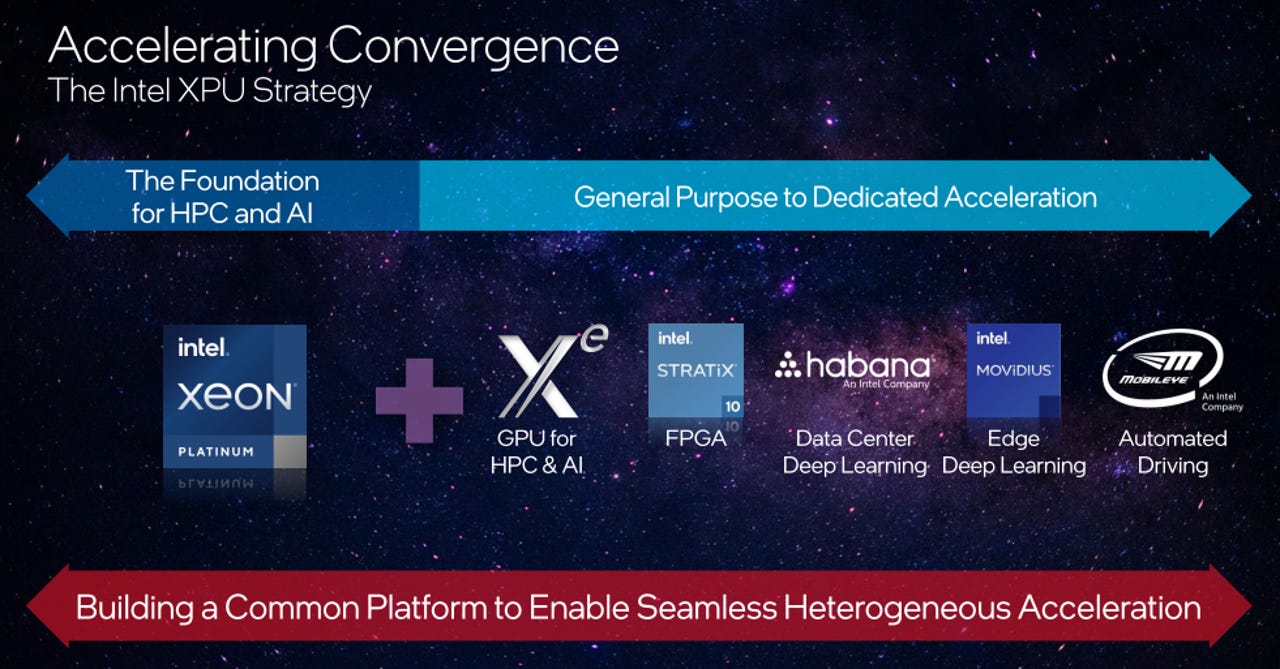Intel, Argonne National Lab co-design XeHP GPUs, oneAPI in exascale HPC chase

Intel and Argonne National Laboratory said they will co-design and validate exascale-class applications using the chipmaker's GPUs, microarchitecture and developer tools.
The collaboration is part of the chase for exascale computing. On Monday, AMD outlined its entry into the exascale mix with its Instinct MI100 GPU accelerator, which is designed to work with its EPYC server processors.
Argonne will use GPUs based on Intel's XeHP microarchitecture and oneAPI Toolkits. Tech giants, government, industry and academia are collaborating to create exascale supercomputers. These bleeding edge systems rely on hardware and software advances that typically go mainstream amid artificial intelligence and data intensive workloads.
- Intel lifts lid on Rocket Lake's Cypress Cove core architecture
- Intel's Q3 in line with expectations, data center chip sales down from year ago
- 3rd-Gen Intel Xeon 'Ice Lake' Scalable Platform built to handle confidential computing
- Intel: Data bandwidth, sparsity are the two biggest challenges for AI chips
Intel is prepping to roll out its 3rd generation Intel Xeon Scalable processors, code named Ice Lake, for HPC workloads. Customers for those processors include Max Planck Computing & Data Facility, Oracle and the Korea Meteorological Administration.
In a keynote, Trish Damkroger, general manager of Intel's HPC group, said that the company is looking to offer a suite of HPC processors and technologies to handle various workloads.

Key points:
- Argonne Leadership Computing Facility are using software development tools based on Intel Xe-HP GPUs for the Aurora Early Science Program and Exascale Computing Project.
- Intel Xe-HP GPUs will be optimized across Intel CPUs. Intel Xe-HPC GPUs will be used in the Aurora system.
- The Intel software and processors are being validated for multiple workloads including molecular dynamics, Quantum Monte Carlo algorithms and modeling for complex physical phenomena as well as cosmological simulations.
- Separately, Intel said partners are offering Intel Select Solutions for HPC systems including AWS, Penguin Computing and Advantech.